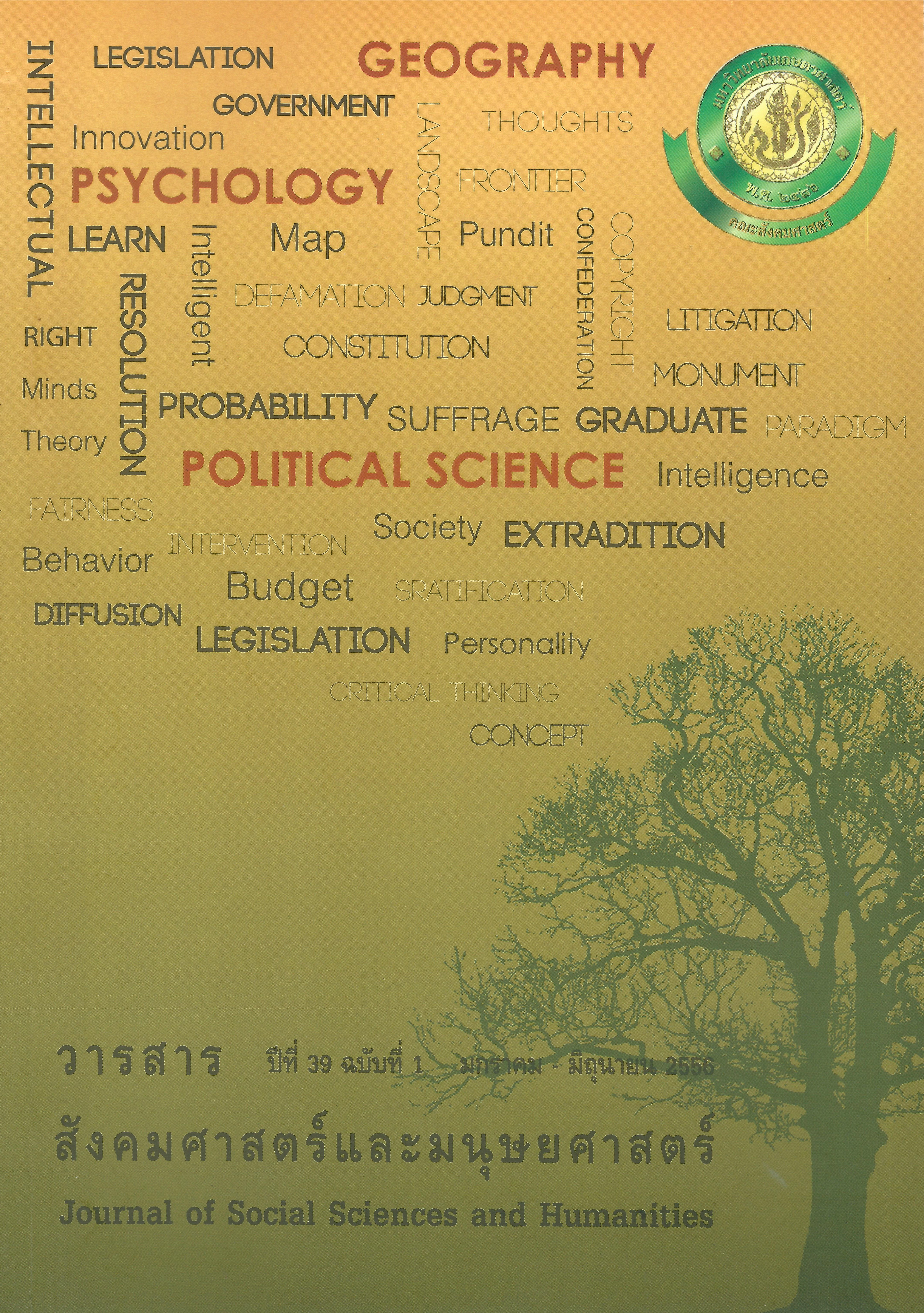การลงทุนของต่างชาติต่อการขายที่ดินภาคเกษตรกรรม: กรณีศึกษาจังหวัดพระนครศรีอยุธยา
Main Article Content
บทคัดย่อ
การวิจัยครั้งนี้มีวัตถุประสงค์เพื่อศึกษากระบวนการขายที่ดินภาคเกษตรกรรมในจังหวัดพระนครศรีอยุธยาให้ทุนข้ามชาติ โดยศึกษากรณีพื้นที่ที่กำลังประสบปัญหาเรื่องการขายที่ดินใน 2 อำเภอ ได้แก่ ตำบลลาดชิด อำเภอผักไห่ และตำบลหัวเวียง อำเภอเสนา จากการสำรวจครัวเรือนตัวอย่างในพื้นที่ศึกษาพบว่า ในช่วง 20 ปีที่ผ่านมามีครัวเรือนที่ขายที่ดินคิดเป็นร้อยละ 22.7 ทั้งนี้ช่วงปีที่มีการขายที่ดินมากที่สุด คือ พ.ศ. 2537-2541 ที่ดินที่มีการขายทั้งหมดจำนวน 1,930.90 ไร่ คิดเป็นมูลค่าทั้งสิ้น 101,098,500 บาท โดยเฉลี่ยจะขายที่ดิน 13.32 ไร่ต่อครัวเรือน คิดเป็นเงินจำนวนมากกว่า 200,000 บาท นายทุนที่ซื้อที่ดินในการศึกษาครั้งนี้ พบว่า เป็นรูปแบบบริษัทที่จัดตั้งโดยคนไทย บริษัทที่เกี่ยวข้องกับพื้นที่ศึกษามี 4 บริษัท จากการตรวจสอบข้อมูลเบื้องต้นพบว่ามีเพียง 1 บริษัทที่มีผู้ถือหุ้นเป็นบริษัทจดทะเบียนต่างด้าว ในด้านการเปลี่ยนแปลงวิถีชีวิตของเกษตรกรและการเปลี่ยนแปลงชุมชน พบว่า รูปแบบการดำเนินชีวิตเปลี่ยนแปลงไป เกษตรกรบางรายได้ละทิ้งอาชีพชาวนาไปชั่วคราว บางรายยังคงทำนาอยู่ต่อไปแต่อยู่ในฐานะผู้เช่านา การศึกษาครั้งนี้จึงได้เสนอแนวทางในการจัดการที่ดินให้เกิดประสิทธิภาพและเป็นธรรม ได้แก่ การสร้างกลไกควบคุมการถือครองที่ดิน โดยให้หน่วยงานส่วนท้องถิ่น เช่น องค์การบริหารส่วนตำบลและสถาบันท้องถิ่นอื่นๆ เข้ามาช่วยตรวจสอบการเข้าครอบครองที่ดินของ บุคคลหรือทุนภายนอก
Foreign Investment toward Agricultural Land Sales: Case Study in Ayutthaya Province
The objective of this study was to examine the process in agricultural land sales to foreign investment. The study areas were Lat Chit Subdistrict, Phak Hai District, and Hua Wiang Subdistrict, Sena District, Ayutthaya Province, Thailand. The findings of household survey indicated that there were 22.7 percent of the sample households that sold their land in the past twenty years. The highest sales occurred in 1994-1998. In the past two decades, about 1,930.90 rai (772.36 acres) of land were sold, with the total value of 101,098,500 baht. Among the farmers who sold their land, the average land sod was 13.32 rai (5.33 acres) per household and gained over 200,000 Baht. There were four companies involved in the purchase while one of the companies had foreign investors as its stock holders. In terms of changes in livelihoods, some farmers who sold their lands gave up their occupation as the rice farmers. Some continued to be rice farmer but their status had changed to that of a land tenant. This study recommended that the Thai government needs to initiate effective and fair controlling mechanism in land tenures by managing through the local administrative organizations or other local organizations.


